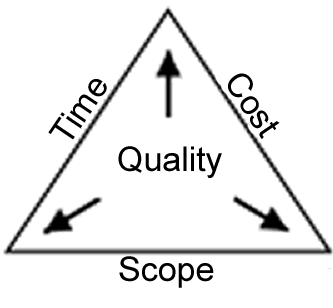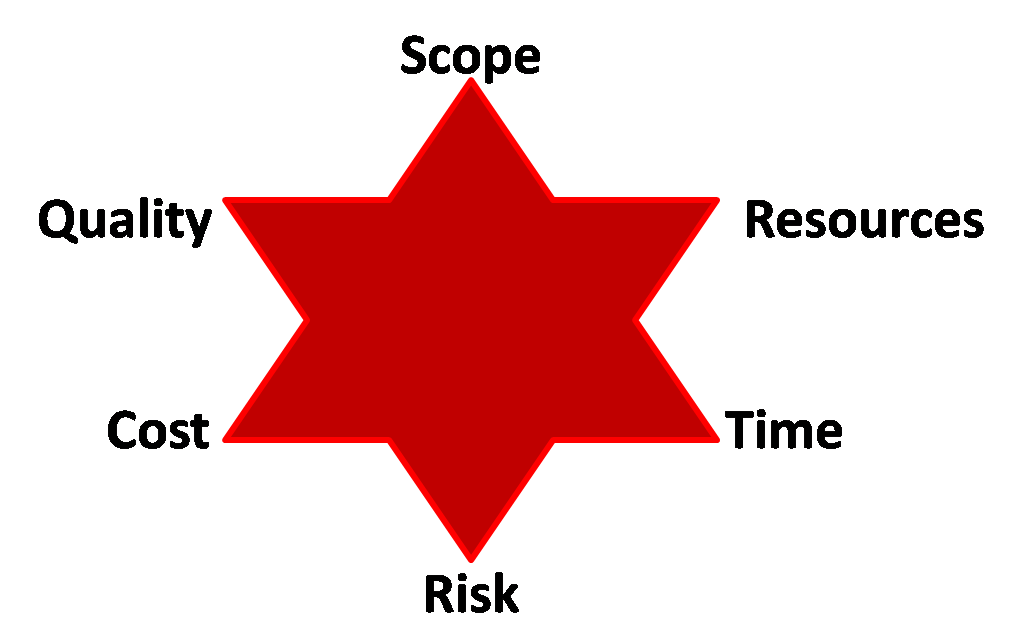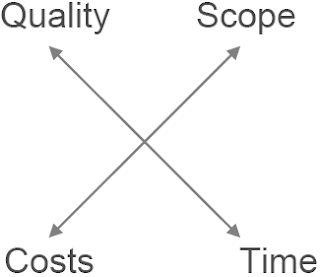- Cost
- Quality
- Time
- Cheap
- Good
- Fast

Web site logical path: [www.psy.gla.ac.uk] [~steve] [best] [this page]
Most of the education literature, especially that related to pedagogy and/or technology, maintains a prudish silence about money. This renders it largely irrelevant to practitioners and policy makers. For instance many people believe (even if wrongly) that the ideal learning situation is to have unlimited 1:1 time with a personal tutor. That is pedagogy solved then.
In fact education is like almost all design or construction: it is subject to a triangle of factors. You can optimise for two at the expense of the third, but you can't maximise all three at once.
The traditional triad of factors are:
|
|

|
|
|
|

|
|

|

|
|

| Original think piece |
Sometimes you would prefer to maximise or minimise a factor (e.g. the cheaper the better); but sometimes, it is that you have to stick to a pre-determined value e.g. it must be ready by a deadline (but little reward for being early); must not exceed the budget (but you'll only lose any money left over).
Sometimes you can convert money to time by hiring more people or buying in parts; but more often there isn't the time for that (recruitment and training take time), which is why cost and time are separately listed.
Sometimes you might consider varying all 4; but often a job in effect specifies some factors, leaving only some to be varied. You can say then that the fixed ones are top priority, the variable ones less so.
Eg1 Time and errors in a simple task. Errors -> quality. E.g. washing the dishes: quantity is fixed (you must do them all); cost is fixed (no money, you have to do them); the tradeoff is between doing them fast or doing them carefully.
Eg2 Quality first. Sydney opera house; writing Fawlty Towers. Things you've done often have fairly well known standard time and costs; outstandingly creative things have unknown time and costs. The opera house ran over budget by about 10 times in both time and money, but the quality left the city with a landmark that is recognised round the world from a glimpse. Cleese once said it took them about 3 times longer to write the Fawlty Towers scripts than the standard BBC allowance (in time and money); but these are the shows that are still celebrated decades later, while others done on time and to budget were never re-run. These are cases of putting quality first.
When a project (e.g. a road bridge) involves safety, it often means safety-quality has to be put first (or the project cancelled without completion).
Eg3 On time and to budget. What this means, but doesn't say, is that quality is put last.
Perhaps unexpected corollaries of this in HE are:
These are 3 sub-aspects of quality.
Reeves,T.C. (1992) "Evaluating interactive multimedia" Educational technology May, pp.47-52.
Web site logical path:
[www.psy.gla.ac.uk]
[~steve]
[best]
[this page]
[Top of this page]